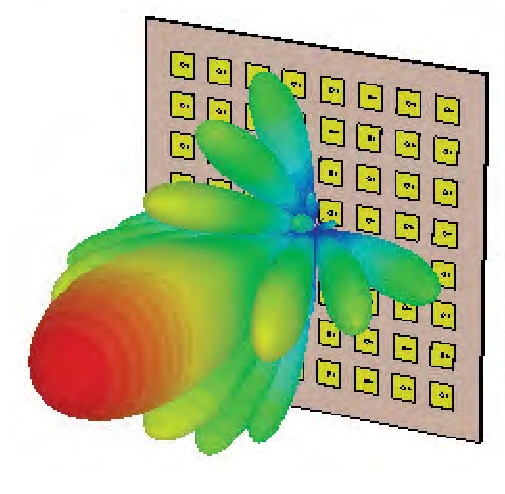Openings at ME
Joint Development of Sparse Antenna Array Topology and High Resolution DoA Estimation
Opening for: PhD studentStatus details
| Status: | Closed |
|---|---|
| Announced: | 30 Apr 2024 |
| Closing date: | 31 May 2024 |
| Duration: | 4 years |
Constantly evolving advanced driver assistance systems (ADAS) demand radar sensors with high angular resolution for object detection and classification. Improvement of angular resolution is conventionally achieved by increasing the number of transmit and receive antennas, which leads to higher cost, processing, and thermal requirements. This has motivated the use of sparse multiple-input-multiple-output (MIMO) array topologies in automotive radars. However, the current topology synthesis methods rely on a quasi-random layout selection after an exhaustive search, which becomes suboptimal, and even infeasible for a large number of antennas. Besides, the electromagnetic (EM) effects, such as mutual coupling, are ignored in the system development phase, which causes performance degradation (degree of arrival (DoA) errors, high interference) and/or heavy calibration needs.
To achieve high resolution and overall robust performance of angular estimation with sparse arrays, joint development of MIMO array topologies (sampling problem) and angular estimation algorithms (estimation problem) is required while considering the physical effects (EM problem). The novel idea in DoAnt is to develop an EM-driven optimization framework for sparse radar sensor arrays integrated with DoA estimation. With its interdisciplinary nature, DoAnt aims to synthesize innovative sparse array topologies for automotive radar antennas at 77 GHz to improve the performance, reliability, and robustness of DoA estimation against EM non-idealities.
Responsibilities
- Conduct in-depth research on MIMO array topologies and angular estimation algorithms, staying abreast of the latest advancements and breakthroughs in the field.
- Develop innovative EM-driven optimization methodologies (e.g. physics embedded machine learning) for sparse 2D Tx-Rx topologies integrated with DoA estimation.
- Verify theoretical results via simulations and experiments.
- Contribute to the scientific community knowledge through high-quality publications.
- Collaborate with industry partners, academic institutions, and research organizations to stay connected with the latest developments and foster collaborative opportunities.
- Prepare and defend the Ph.D. thesis, which summarizes the results of the research.
Requirements
- MSc degree in Electrical Engineering, Physics, or a related field.
- Strong background in signal processing and optimization. Background in electromagnetics and antenna design is appreciated.
- Proficiency in programming languages such as Python or MATLAB.
- Experience with simulation tools and software for electromagnetic analysis.
- Excellent analytical and problem-solving skills.
- Effective communication and collaboration skills.
Doing a PhD at TU Delft requires English proficiency at a certain level to ensure that the candidate is able to communicate and interact well, participate in English-taught Doctoral Education courses, and write scientific articles and a final thesis. For more details please check the Graduate Schools Admission Requirements.
Contact
dr. Yanki Aslan
Assistant Professor
Microwave Sensing, Signals and Systems Group
Department of Microelectronics
More information
Additional information
In The Netherlands, almost all PhD positions are linked to funded research projects. This has several implications:- PhD students are employed: they receive a salary rather than a grant. Most projects have a duration of 4 years.
- Positions become available once a project is funded. This can happen at any time during the year.
- It typically takes 6 to 9 months for a project proposal to receive funding. In this period, a position may be anticipated but the outcome remains insecure. Once a project is funded, the open position needs to be filled as soon as possible.
If you are interested in our research, it merits to inquire whether openings will be available. We collect resumes of prospective PhD students throughout the year, for each of our research tracks.
General requirements
We make our selection based on the following general requirements:- Formal requirements regarding prior education: you should have earned an MSc degree at a recognized institute for higher education.
- Background: you should have a background that fits the requirements of the project
- Excellence: your Grade-Point-Average should be above 8 (10). Also your MSc thesis should have received a grade above 8 (10).
- English: you should be able to communicate well in english (written and oral). Provide TOEFL/IELTS scores if available.
- Originality: your MSc thesis or later work (publications) should reflect some original ideas. Critical and independent thinking is very important.
- Team player: you should be able to work well in a team of other project members.
